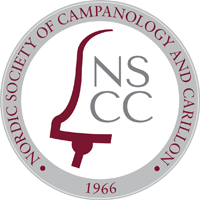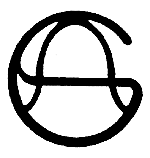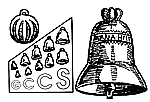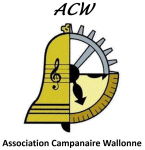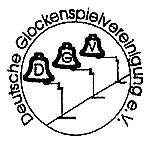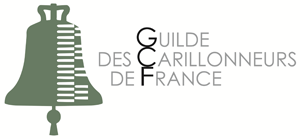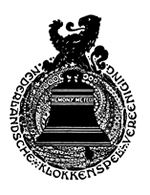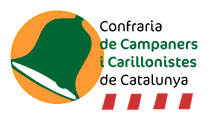|
STATUTES
|
| | Chapter I |
| | Name – Organization – Goal – Seat – Language |
| |
Article 1. Name |
| |
World Carillon Federation (WCF)
Beiaardwereldfederatie (BWF)
Fédération Mondiale du Carillon (FMC) |
| |
Article 2. Organization |
| |
1. The WCF is a grouping of guilds of carillonneurs and carillon associations (hereafter referred
to as "member organizations") which may be multi–national, national or sub–national. The WCF is a non–profit
organization.
2. Multinational guilds or associations may become member organizations of the WCF if a national WCF member organization does not exist in
the territory they cover.
3. Sub–national guilds or associations may be members if a national or multinational WCF member organization does not cover their territory.
4. A member organization of the WCF may not simultaneously be a member of another world carillon organization. |
| |
Article 3. Goal |
| |
1. This organization wishes to serve as a liaison among all carillon associations in order
to defend and promote interests of carillonneurs and to develop the art
of the carillon (by all legal means) including:
a. its improvement from a musical point of view as well from that of construction;
b. the creation and maintenance of the most cordial and fraternal relations
among carillonneurs of all nationalities;
c. the establishment of artistic and musical exchanges.
2. The definition of a carillon is fixed as follows: "A carillon is a musical instrument
composed of tuned bronze bells which are played from a baton keyboard".
Only those carillons having at least 23 bells will be taken into consideration. Instruments built before 1940 and composed of between 15 and 22
bells may be designated as 'historical carillons'.
|
| |
Article 4. Seat (location) |
| |
In principle, the seat of the WCF will be the city where the president resides or in any
other place designated by him and approved by the Executive Committee.
|
| |
Article 5. Languages |
| |
1. Three languages will be used: French, English, and Dutch.
2. French will be the official legal language (however, all documents shall be translated
into English and Dutch for distribution to respective members).
|
| |
Chapter II |
| | Structure – Admission |
| |
Article 6. Members |
| |
Admission to the WCF can be obtained only by those organizations described in Article 2
of these statutes. |
| |
Article 7. Admission |
| |
1. To be admitted to the WCF, candidates (guilds or associations) must submit their request
for affiliation in writing to the president, enclosing their statutes
and the number of individual members in each class of membership described
in those statutes.
2. Upon the recommendation of the Executive Committee, and following discussion by the Committee
of Delegates, a decision to admit a candidate is taken by secret ballot
of the Committee of Delegates.
3. The candidate must be a membership association, without the purpose of making profit, with the principle
of "freedom of association" (an individual's right to join or leave the association). The board of the
association is elected by the members during general assemblies.
|
| |
Article 8. (repealed) |
| |
Article 9. Termination of membership |
| |
Each member organization desiring to terminate its membership in the WCF must do so in writing,
addressing itself to the president, three months before the end of the calendar year.
|
| |
Article 10. Expulsion |
| |
Each member organization may be expelled for the following reasons:
a. failure to pay its dues;
b. by violation of the statutes.
|
| |
Article 11. Investigation |
| |
The admittance or exclusion of a member organization can be made valid only following an
investigation by the Executive Committee and in concurrence by the Committee
of Delegates. |
| |
Article 12. Obligations of member organizations |
| |
a. Each member organization must inform its individual members of the statutes and by–laws of the WCF, plus the decisions of the
Committee of Delegates and the Executive Committee.
b. Each organization shall submit an account of each general membership meeting to the Executive Committee in machine-readable form at
the same time it is made available to its own members. This account shall include all decisions taken and the votes thereon, especially
changes to statutes, elections of officers, and the election or appointment of delegates to the WCF.
c. Delegates to the Committee of Delegates must introduce themselves with written certification from their member organization which
attests that they have been designated as delegates.
|
| |
Article 13. No financial reimbursement |
| |
A resigning member organization, or one who has been expelled, is never entitled to reimbursement
of sums paid to the WCF. |
| |
Chapter III |
| | Control – Qualification – Administration |
| |
Article 14. Control of the WCF |
| |
The control of the WCF is assigned to the Committee of Delegates. |
| |
Article 15. Composition of the Committee of Delegates |
| |
The Committee of Delegates is composed of delegates from all affiliated member organizations
according to the following rules:
1 delegate for a member organization with 5 to 40 dues–paying individual
members within its territory;
2 delegates for a member organization with 41 to 100 dues–paying individual
members within its territory;
3 delegates for a member organization with 101 to 200 dues–paying individual
members within its territory;
4 delegates for a member organization with more than 200 dues–paying individual
members within its territory. |
| |
Article 16. Duties of the Committee of Delegates |
| |
a. to elect the president and the other members of the Executive Committee (EC);
b. to establish special committees;
c. to determine dates and places of World Congresses;
d. to designate auditors of finances;
e. to encourage and eventually support artistic events or other campanological activities.
|
| |
Article 17. Composition of the Executive Committee |
|
The Executive Committee consists of a president, a vice–president, a secretary for European territories,
a secretary for non–European territories, a treasurer and two other members. Apart from the post of president, which is designated
by the Committee of Delegates, members of the Executive Committee choose the other officers from among themselves by mutual agreement.
|
| |
Article 18. Duties of the Executive Committee |
| |
a. to regulate all activities and projects of the WCF;
b. to issue invitations for meetings of the Committee of Delegates;
c. to monitor the application of the statutes, attempting to resolve all differences regarding the interpretation of the same;
d. to give opinions on all written proposals from members of the Committee of Delegates;
e. to submit to the Committee of Delegates a budget proposal at each World Congress;
f. to report at the meetings of the Committee of Delegates on areas of work during the past years. |
| |
Article 19. Auditors |
| |
The committee of auditors is composed of two delegates and one alternate. They cannot be
members of the Executive Committee. They are appointed at each World Congress by the Committee of Delegates. |
| |
Chapter IV |
| | Meetings – Elections |
| |
Article 20. World Congresses |
| |
1. A World Congress will be organized at least every four years by the Executive Committee
and Committee of Delegates and implemented by a special committee.
2. The Committee of Delegates will meet during each World Congress.
3. At each World Congress, the Committee of Delegates will decide, based upon received applications, the organizer, the place, and the date of the next World Congress.
4. The applications mentioned in Article 20.3 must be received by the president of the WCF no later than 180 days before the World Congress during which the Committee of Delegates will make its decision.
5. It is the task of the Executive Committee to oversee the organization of a WCF congress, according to the Congress Guidelines (as approved by the Committee of Delegates), from the submission of the proposals up to the actual congress. |
| |
Article 21. Special meetings of the Committee of Delegates |
| |
A simple majority of the Committee of Delegates can call a meeting of that committee, either
at a meeting or by correspondence.
|
| |
Article 22. Quorum for Committee of Delegates votes |
| |
One third of the members of the Committee of Delegates must be present to constitute a quorum. |
| |
Article 23. Elections and decisions of the Committee of Delegates |
| |
To be valid, all elections and decisions must be made by a simple majority of votes by
the members present or by their proxies (see also Art. 22). In case of a tie the president will cast the deciding vote. |
| |
Article 24. Announcements and agenda of Committee of Delegates meetings |
| |
The Executive Committee will issue to members of the Committee of Delegates, 60 days in advance,
announcements of meetings which include agendas for same. Members of the
Committee of Delegates, who wish to submit additional proposals to the
Executive Committee, must submit them in writing 40 days prior to the
date of the meeting. |
| |
Article 25. Vote by correspondence |
| |
The Executive Committee, in exceptional cases, may organize a vote of the Committee of Delegates
by correspondence (i.e. mailed ballot). A decision to conduct a vote by
correspondence must be carried unanimously. |
| |
Article 26. Candidates for the Executive Committee |
| |
Each member of the Committee of Delegates may nominate himself as a candidate for the Executive
Committee by written application, or may be proposed by two other delegates
(with his concurrence) in writing. |
| |
Article 27. Re–nomination for the Executive Committee |
| |
Outgoing members of the Executive Committee may be re–nominated. |
| |
Article 28. Frequency of elections to the Executive Committee |
| |
Members of the Executive Committee are elected for a period of two World Congresses.
One half of the Executive Committee will retire at each World Congress. |
| |
Article 29. Secret ballot |
| |
The election of the president and all other members of the Executive Committee will be by
secret ballot. |
| |
Chapter V |
| | Finances |
| |
Article 30. Treasury |
| |
The treasury of the WCF constitutes:
a. annual membership dues;
b. donations, subsidies, legacies and occasional gifts. |
| |
Article 31. Fiscal year |
| |
The fiscal year begins 1 May and ends 30 April of each calendar year. Yearly dues must be paid
before 31 March. |
| |
Article 32. Responsibility |
| |
The WCF is not responsible to anyone as regards its possessions. The members of the Executive Committee
are personally responsible for their actions to the Committee of Delegates, but to nobody else. |
| |
Article 33. Voluntary activities |
| |
All activities of the members of the Executive Committee and Committee of Delegates are
voluntary (i.e. without monetary compensation). |
| |
Chapter VI |
| | Modification of the statutes – Dissolution |
| |
Article 34. Proposals for modifications |
| |
These statutes may be modified or expanded by proposals from the Executive Committee, by
other delegates of the Committee of Delegates, or by member organizations. |
| |
Article 35. Required majority for modifications |
| |
Statutes and by–laws may be changed by the Committee of Delegates, with a vote of two thirds
majority of its delegates present (including proxies). If requested by
one delegate, there shall be a secret ballot. |
| |
Article 36. Dissolution |
| |
a. In order to dissolve the WCF, there must be a three–fourths majority vote of Committee of Delegates
members present (see also Art. 22).
b. Dissolution of the WCF will be automatic if the number of its member organizations
is reduced to one. |
| |
Article 37. Distribution of funds |
| |
In the event of dissolution, no member organization may demand any property or goods belonging to the
WCF nor the return of any paid contributions. Upon dissolution, all funds of the WCF shall be distributed
equally according to representation. The disposition of all reports, documents
and other possessions, except funds, will be put to a vote. |
| |
Chapter VII |
| | By–laws |
| |
Article 38. By–laws |
| |
In order to achieve good continuity of efforts, those things not covered in the statutes will
be governed by by–laws, established by the Committee of Delegates in accordance
with the statutes. |
| |
Chapter VIII |
| | Miscellaneous |
| |
Article 39. Forbidden discussions |
| |
All discussions of a religious, political or philosophical nature are forbidden
in meetings of the WCF. |
These modified statutes were adopted by the Committee of Delegates on 7 August
1998 at Mechlin. They replace the statutes ratified on 8 August 1978 at
Amersfoort and modified on 5 July 1990 at Zutphen and on 12/14 July 1994
at Chambéry.
On 12 July 2008 at Groningen and on 29 June 2011 at Blooomfield Hills the Committee of Delegates
agreed on another set of modifiations. |
 |
|
BY–LAWS
|
| |
Chapter I |
| | Organization – Membership |
| |
1. An Honorary Title may be conferred on individuals who are, or have been,
deemed deserving of it.
|
| |
Chapter II |
| | Leadership – Dues – Administration |
| |
1. The president or vice–president opens, presides over, and adjourns meetings
of the Committee of Delegates and of the Executive Committee.
2. In the absence of the president, or by his premature resignation, the
vice–president will replace him until he can resume his duties or until
the next election. The same is true between the two secretaries. In
case of the absence of both president and vice–president, the oldest
member of the Executive Committee will assume the duties of the president.
3. The duties of the two secretaries will be divided by mutual agreement
in order to accomplish:
a. the publication of the official minutes of
the meetings of the Committee of Delegates and of the Executive Committee
and their distribution to member organizations;
b. necessary correspondence;
c. the supervision of the archives of the secretariat;
d. an up–to–date list of the members of the Committee of Delegates and of the Executive
Committee.
4. Minutes of each meeting of the Committee of Delegates will be sent out within three months by email to the delegates. Every delegate is entitled to have his/her contribution corrected/recorded in the minutes on request. This starts the approval procedure, with new version(s), and the request for approval by mail. Five months after the meetings, the minutes should be approved.
5. The treasurer will collect annual dues and will account for the finances.
With the approval of the Executive Committee, he will establish a bank
account in the name of the WCF.
6. To be valid, all official documents must be signed by the president
or vice–president and one of the secretaries. |
| |
Chapter III |
| | Meetings – Elections |
| |
1. The president or vice–president determines the date for a meeting of
the Committee of Delegates and/or Executive Committee. He informs the
secretaries of this date and the meeting's agenda who, in turn, issue
announcements in writing to all members of the Committee of Delegates
or Executive Committee at least 60 days in advance.
2. Each delegate to the Committee of Delegates has the right to be represented
by proxy if the said person is authorized in writing by his member organization.
However, each delegate has a right to carry only one proxy per meeting.
This he must present at the beginning of the meeting.
3. In case of emergency, topics which do not appear on the agenda may be proposed
by the president or by members of the Executive Committee at the opening of the meeting.
They may be included on the agenda only by a favourable two–thirds majority
vote of the delegates present.
4. Any election of people must be made by secret ballot; for general business
matters a vote by raising of hands may be taken, unless those present
decide otherwise. Vote by acclamation may also be proposed.
5. Blank votes do not count. An absolute majority is one–half of the valid
votes plus one (see also statutes, Art. 23).
6. In case of a tie in a presidential election, the vote will begin again
until a majority is obtained (i.e. the greatest number of valid votes).
7. After each election, the Executive Committee may review the distribution
of duties. The new Executive Committee will assume these duties at the
end of a session.
8. A delegate may belong to more than one member organization, but may
only represent a single member organization as a delegate.
9. A majority of the Executive Committee constitutes a quorum. |
| |
Chapter IV |
| | Finances |
| |
1. The Executive Committee proposes the annual dues from members (statutes,
Art. 18.e).
2. Members of the Executive Committee have the right to a reimbursement
for travel expenses to participate at meetings or, if possible, at
other activities of interest to the Federation. Amounts will be determined
in advance and approved by the Executive Committee within the limits
of the bi–annual budget (statutes, Art. 18). |
| |
Chapter V |
| | Modification of the by–laws |
| |
1. The by–laws may be amended (modified or completed) by proposal of the
Executive Committee or other members of the Committee of Delegates (for
ratification procedure see statutes, Art. 35).
2. The Executive Committee will decide on matters not covered in the statutes
or by–laws. These modifications or additions are temporary. They will
be made known to members of the Committee of Delegates at the next meeting
and validated by their vote. |
| |
Chapter VI |
| | Miscellaneous |
| |
1. In case of resignation, expulsion or defeat of a member of the Executive
Committee, this person will remit to a member of the Executive Committee
within two months following his resignation, exclusion or defeat, the
property of the Federation (money, reports, official seal, etc.) coming
from and belonging to the WCF. |
These modified by–laws were adopted by the Committee of Delegates on 7 August
1998 at Mechlin. They replace the by–laws ratified on 5 August 1980 at Dijon by the Committee of Delegates.
On 12 July 2008 at Groningen and on 29 June 2011 at Blooomfield Hills the Committee of Delegates
agreed on another set of modifiations. |
 |
